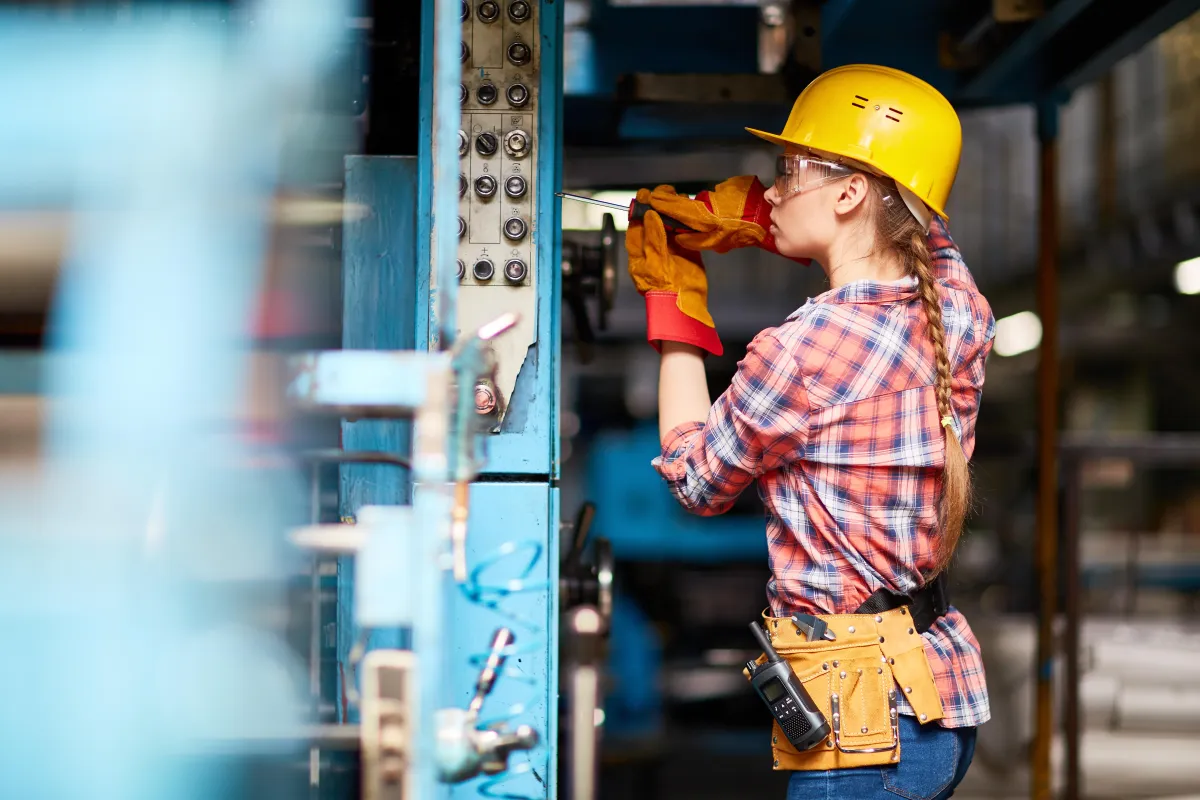BLOG
Stay ahead of the game and
dominate your market.

Women in Traditions: Hiring for Growth & Equity in Home Repair Services

The skilled trades are evolving—and not a moment too soon. America is facing a critical shortage of trained technicians in nearly every sector of the home services industry. From plumbing and HVAC to electrical and general contracting, experienced workers are retiring from the workforce faster than we can replace them. According to the U.S. Bureau of Labor Statistics, more than 500,000 skilled trade jobs remain unfilled, and by 2028, that number could surpass 2 million if the trend continues.
The average age of a skilled tradesperson in the U.S. is 55 years old, and nearly one-third of the trades workforce is expected to retire within the next decade. This creates a significant talent gap for home repair businesses, particularly in cities like Chicago, where demand is increasing and reliable technicians are in short supply.
This is where women step in—not just as a solution, but as a competitive edge.
Women bring fresh talent, precision, innovation, and resilience to roles that men have historically dominated. They’ve been overlooked for too long, yet represent one of the largest untapped labor pools in the trades. By welcoming women into your workforce, you’re not only solving a hiring problem—you’re investing in a stronger, more future-proof team.
For local home repair companies, hiring women isn’t just good ethics—it’s good economics. Businesses that diversify their workforce are more adaptable, have higher employee retention, and enjoy greater customer trust and satisfaction.
In an era when skills are scarce and expectations are high, building inclusive teams is a strategic move that directly impacts your bottom line.
📈 Current Landscape: Slowly Climbing
In 2023, 363,651 women worked in U.S. construction and extraction occupations—the highest number ever, but still representing just 4.3% of the workforce. Growth was swift, up 28% since 2018.
Across all construction roles (including office-based), women account for 10.9% of industry employment, rising from 9.9% in 2018.
By 2024, women made up 11.2% of construction workers, totaling approximately 1.34 million, representing a 45% increase over the previous decade.
Progress is uneven by role:
Carpenters: 3.1% women (was 2.2% in 2018)
Electricians: 2.9%
Plumbers/Pipefitters/Steamfitters: 2.2%
Welders: just 5.3% women. Despite the momentum, women remain vastly underrepresented in hands-on trades.
🔍 Why Hiring Women Matters — And Wins
Labor shortage solution: Facing a demand for an extra 500,000 workers by 2024, construction and home repair services need every capable pair of hands.
Better performance: Companies with diverse teams are up to 25% more innovative and productive.
Narrowing pay gaps: Women in construction earn 94.3% of what men make, far above the overall average of 83%.
Stronger retention: Inclusive workplaces with support programs, safety equipment, and mentorship encourage long-term employee growth.
👀 The Roadblocks to Watch
Despite opportunities:
Women still make up only 4% of skilled trade teams.
Eighty-eight percent report harassment or bias on-site; retention suffers if not addressed correctly.
Safety gear is often not sized or designed for women, which is a liability.
DEI funding is currently unstable; organizations like CWIT rely heavily on grants, which are now at risk due to policy changes.
🔮 Looking Ahead: Future of Women in Trades
Rise in apprenticeships: Women represented 4.7% of active construction apprentices in 2023, growing 55% since 2018.
Vocational programs are attracting more women, with enrollment up 30% since 2020.
Leadership roles are increasing, and women now hold 10.6% of construction manager roles, up from 7.7% in 2018.
As more women succeed, they challenge stereotypes and inspire younger generations to follow.

✅ Smart Hiring: Hire, Support, Retain Women
Targeted recruiting
Partner with Chicago Women in Trades, NAWIC, and local training programs.
Mentorship & on-boarding
Offer veteran mentors; hold regular “Constructing Confidence”-style roundtables.
Safety & equipment
Provide PPE designed for all body types; ensure respectful, inclusive job sites.
Flexible policies
Offer paid parental leave, flexible scheduling, and benefits that show real support.
Culture of care
Commit publicly to DEI, accountability, and zero tolerance for harassment.
🏆 Final Takeaway
Hiring women in home repair and construction isn’t just the right thing to do—it’s also strategic, given growing labor needs, rising performance metrics, and narrowing pay gaps. Cultivating an inclusive workforce positions Chicago businesses for profitability, stability, and impactful community leadership.
At M808 Marketing, we’re proud to be a women-owned agency, and we’re passionate about partnering with women entrepreneurs in the home service industry. We believe representation matters, and we’re here to help women-owned and women-led businesses thrive with smart, sustainable digital marketing strategies.

